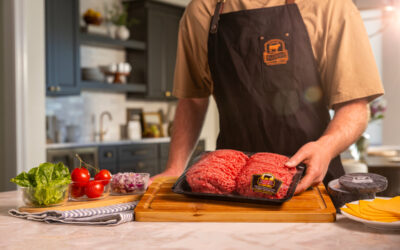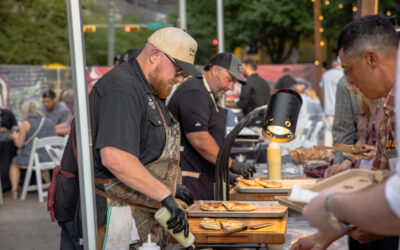
Tri-tip twice
*Disclaimer: This is not a “foodie” blog like GoRare. This is not the place to find cooking tips and new recipes like the treasure trove of information Katrina shares over on Make Mine Beef. And it isn’t a place where consumers regularly come for a behind-the-scenes look at the industry, like Anne provides on her Feedyard Foodie.
This a blog for the production sector, but I told you a couple weeks ago that I fancy myself somewhat of a CAB evangelist so I couldn’t pass this opportunity up.
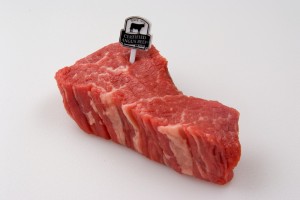
If you’ve never had tri-tip, it’s worth the effort to locate one.
(In full disclosure, I’ve only ever had Certified Angus Beef tri-tip, so I’ll only guarantee that statement if you go for the high-quality.) Ask your butcher or your meat department manager.
Some people like to cut tri-tips into steaks. Since they’re technically a roast, they do well in a Crockpot and make the best hot beefs, but I always think of that as a wasted opportunity. With a few prep steps, I like to throw that whole hunk of meat on the grill.
My suggestion: use a rub. I’ve never found one I didn’t like, but my ultimate favorite was a couple of free packets I picked up from a tradeshow, courtesy of the Texas Beef Council. Sure wish I could get my hands on some more of that. (Hint, hint, any dear Texas readers who want to butter me up.)
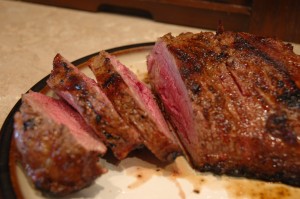
Anyway…I rub it down and then sear all sides briefly in a pan of hot oil.
Meanwhile my grill has been heating up. I turn it all the way down to the very lowest settings before grilling it for 12-15 minutes per side. Let it “rest” for five minutes to let the juices redistribute and viola.
I’ve never messed this one up. (Ok, almost never. There was that one time that its grill buddy—the potato and carrots pouch—leaked some butter and caused a flare-up. Even then I just scraped the charred side off and it was still delicious. Gotta love a piece of meat that’s that forgiving!)
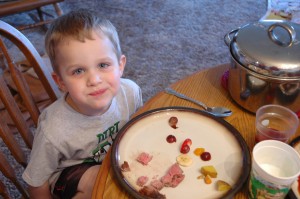
It works great for entertaining because you don’t have to baby-sit the grill, plus you have varying degrees of doneness from the ends to the center cuts.
The weather around here is supposed to be b-e-autiful this weekend and I can’t think of any better way to say, “Welcome spring!”
There’s no law that says I can’t have tri-tip twice in one week is there?
May your bottom line be filled with black ink,
Miranda
You may also like
Success, Despite Challenges
Today’s market is complex and competitive. The collective effort of stakeholders across the supply chain positions Certified Angus Beef to meet the record demand for premium beef moving forward. Signals across the beef industry are clear and Angus farmers and ranchers seeking high-quality genetics that deliver premium beef are producing a product in high demand.
Keep the Supply Coming
A record-high 800 registrants from 17 countries gathered in Austin, Texas, to learn more about CAB, become inspired by the culinary work of chefs and pitmasters, and celebrate sales and production success. But at the forefront: supply and demand, a reflection of the chaotic past year, and preparing for what’s ahead.
Consumer Demand, Power of Quality
Demand for high-quality beef persists. But with that demand comes challenges. From tight cattle supplies to higher costs and increasing pressure on retailers to deliver a consistent eating experience, the pressure is on. David O’Diam, CAB VP of retail, addressed the current retail beef environment, highlighting both opportunities and challenges in today’s marketplace.

